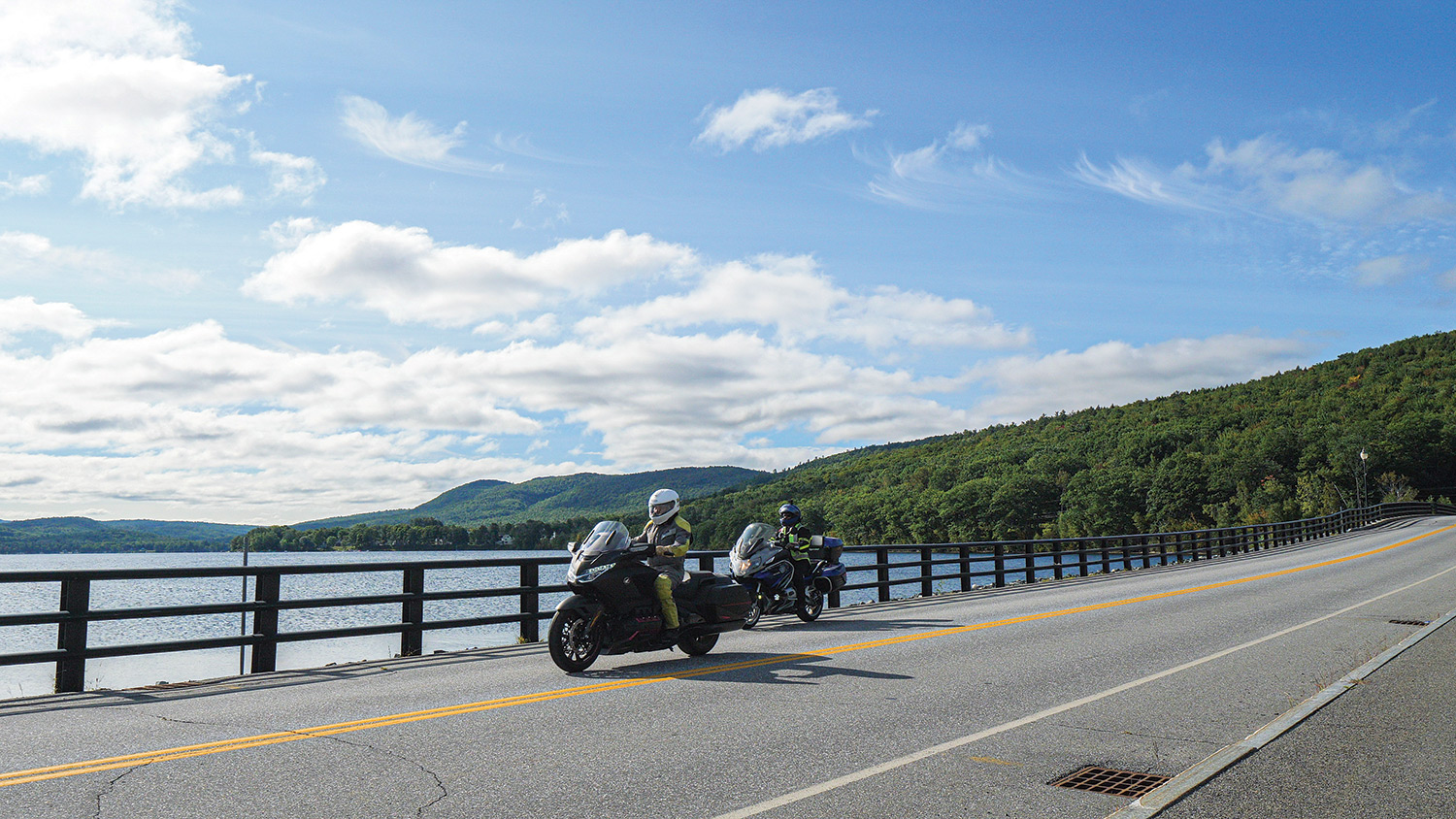New England

It’s 2020 and the world is upside down. Life as we know it—the carefree travel, the large gatherings, the simple act of blowing out candles on a birthday cake—is over. In the shadow of the pandemic, my riding partner and motojournalist friend Moshe and I head up to New England to look for the remnants of utopias past.
There’s a chill in the air as we leave the small village of Lee and explore sleepy western Massachusetts. The road leads to a quiet street in Enfield, CT, where a handful of old buildings are slowly succumbing to gravity and time. There used to be a Shaker community here, founded right after the Revolutionary War. All that’s left today is a fistful of buildings near a Lego corporate office. The main brick building closest to the road is in disrepair and, out back, the brick foundation of a long, wooden building that once was the wash house is bowing out so precipitously that a strong breeze might topple it.

Ann Lee, known as Mother Ann and the founder of the Shakers, visited Enfield three times to recruit followers and was twice met by an angry mob. Despite the hostility, the Shaker community here grew to encompass five villages and nearly 3,000 acres. But, by 1917, they were gone and their land sold. The state bought much of it to build prisons. Decades later, the state burned hundreds of pieces of old (but now highly prized for their craftsmanship) Shaker chairs because they could not give them away.
At lunch, we’re reminded that we are traveling during a pandemic. One restaurant is takeout only and we can’t find a place with outdoor dining. We settle on another one that’s nearly empty. We eat and talk mopeds, Moshe’s current obsession. They were his gateway to motorcycles and now, decades later, he’s on the hunt for one to rekindle an old flame.

On Any Sunday
It’s a short ride from lunch to our next utopia, Hopedale, MA. Founded in 1842 by preacher Adin Ballou, Hopedale was founded on the ideas of “Practical Christianity,” which sought to combine the ideas of a utopian community with a modern factory town. In Hopedale, women were allowed to vote on community issues, decades before the 19th Amendment was signed into law. They also opposed slavery, war, and violence.

In just 10 years, the town grew to 200 residents on 500 acres, with its own school, chapel, bank, post office, and factory. Women’s rights activist Sojourner Truth, social reformer and abolitionist Frederick Douglass, and others visited. Alas, by 1856, Hopedale went bankrupt when members and brothers Ebenezer and George Draper withdrew their investment and formed the Draper Corporation. Across the street from the Little Red Shop Museum, commemorating Hopedale, lie the now-abandoned, hulking remains of the loom factory built by the Drapers. It was shuttered in 1980.
We work our way around the edges of Boston, before turning into a cemetery that was once the Brook Farm Institute of Agriculture and Education, a transcendentalist experiment. The transcendentalists were a group of intellectuals critical of then-contemporary society and its “unthinking conformity.” They endeavored to create a simpler life and community based on farming and education, where everyone would work and share in the fruits of their efforts.

Brook Farm was founded in 1841. Leading intellectuals, like Ralph Waldo Emerson and women’s rights advocate and America’s first female war correspondent Margaret Fuller, were members and visitors. Men and women were paid equally for their labor, but the farm struggled from the start. After the community building (the Phalanstery) they were building burnt down, the end was near. Brook Farm was closed in 1847. All that remains are the foundations of the cottage Fuller would stay at during her visits.
